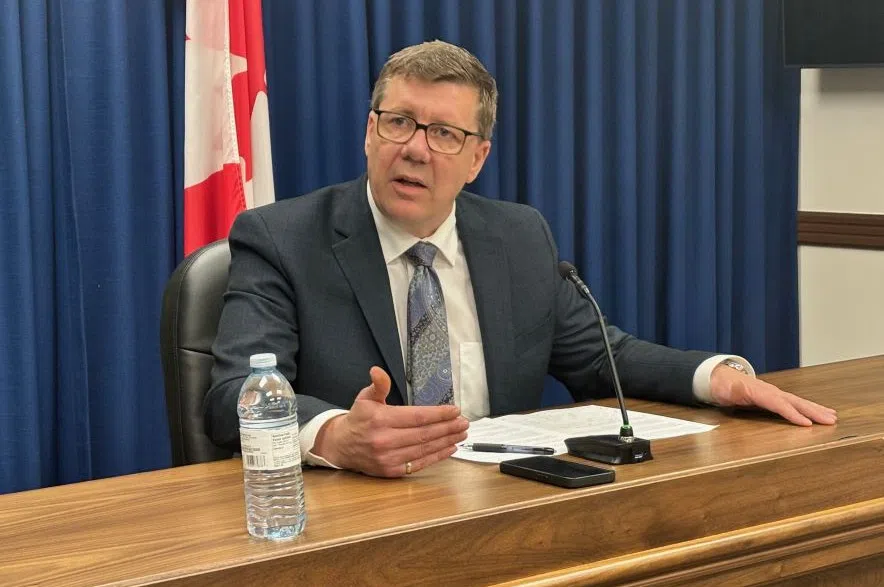Western alienation is a common theme among western Canadian provinces, going back decades.
In the context of Canadian politics, it can be defined in several ways.
According to Duane Bratt, Mount Royal University political science professor, it’s the idea or feeling that prairie provinces like Saskatchewan and Alberta have been marginalized, or don’t have the same status as those in central Canada. It’s the feeling that the federal government operates on behalf of voters and interests in Ontario and Quebec, and largely ignores the west.
“Over the last several decades, probably since the early 1970s, it has been issues around natural resources, and particularly oil and gas,” Bratt explained.
Read more:
- Saskatchewan advance voting up 12% from last federal election
- From red to blue: How Saskatchewan became a Conservative stronghold
- Who’s running in my riding? Saskatchewan’s federal election candidates
While decades ago much of the anger centred around the National Energy Program (NEP) and the division or profits generated by resource extraction and sales, now it’s more about a feeling that resource development is being blocked or stifled by the federal government.
“Those are two very different arguments. One is about taxation and how it’s taxed and who gets what. The other is around emissions caps, industrial carbon taxes and electric vehicle mandates, green energy mandates that are designed to, in their view, not reduce emissions, but to reduce production,” he said.
That sentiment has been expressed by Premier Scott Moe, who’s taken issue with what he called “imposed policies” from the federal Liberal government over the last nine years that he said aren’t in the best interests of Saskatchewan.
“Our issue is policy-based. And I would say the Liberal party of Canada has shifted their policies to some degree and (is) actually adopting some of the Conservative policies, backing up on the consumer carbon tax, and a few other minor things.
“They need to go further from our perspective in order to truly make a commitment that they are going to represent the best interests of Saskatchewan people and families today, and allow us to fully unleash the potential that we have into the future,” he said during an April news conference.
Moe also called on Liberal leader Mark Carney to act in his capacity as Prime Minister, to repeal the Canadian tariffs on Chinese electric vehicles that prompted China to retaliate against Canada with tariffs on some canola products, pork, and seafood in return.
While Moe said he wants his government to work with whichever party forms the next federal government, during the recent Saskatchewan Urban Municipalities Association (SUMA) convention in Saskatoon, he hinted at potential unrest should the next prime minister not consult with western provinces on policies that directly affect them.
“If that leader puts every Canadian ahead of their political ideology, we have a tremendous opportunity to come together, united as Canadians, moving forward.
“If that choice is not made, and that political ideology that we’ve seen in the last nine years continues on into the future, we are going to have a very challenging conversation in this nation,” he told the crowd.
Bratt said whatever happens after the federal election, it’s not just who becomes prime minister, it’s also whether they have representation in Saskatchewan.
“Things seem to die down when conservatives are in office. When Stephen Harper was in office, you didn’t hear as much about that as you are when Justin Trudeau, or Pierre Trudeau or Jean Chretien were in office.
“Fighting Ottawa has always been good politics for premiers in both provinces, but what happens when it’s a conservative?” he wondered.
He also doubted that any talk of becoming the U.S. 51st state, or separating from Canada, would gain much strength.
“Once you actually have a referendum and people start to seriously think about the consequences, then that support starts to plummet. I have yet to see any polling that shows a majority. Usually in its high-water mark, it’s a 30 per cent range,” he said.
Bratt added that it’s not just Saskatchewan and Alberta that feel left out by the federal government at times. When polling is done across the country, most people in every province believe that their province has been hurt in some way.”The question is, where do you go from alienation and believe that you’re getting a raw deal versus support for separatism? There’s usually a wide gap there,” he said.











